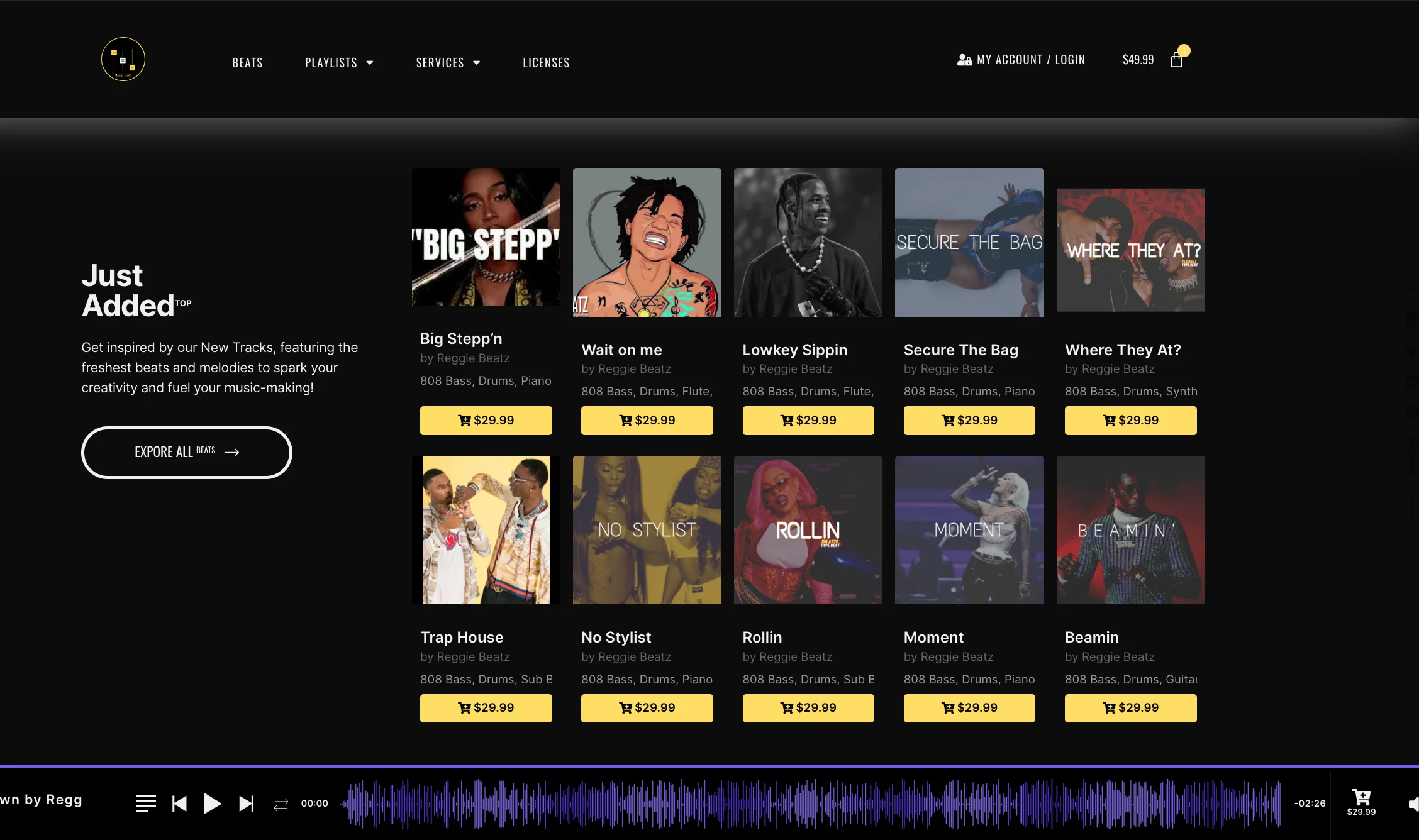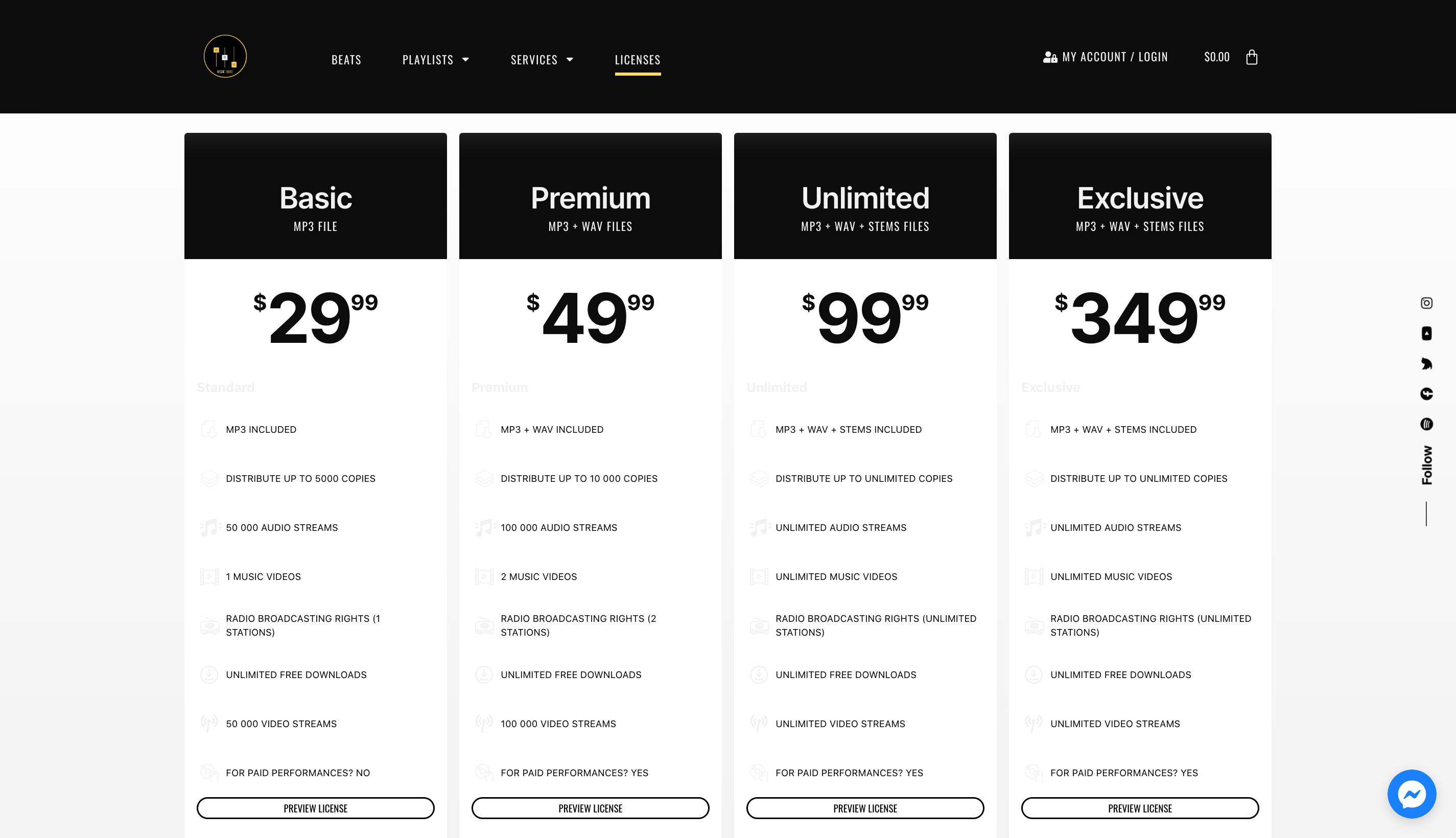
How to Price Beats: A Comprehensive Guide to Pricing Your Beats
How to Price Beats: A Comprehensive Guide to Pricing Your Music <meta name=”description” content=”Learn how to price beats effectively and

In the world of music production, beats play a vital role in creating captivating and memorable tracks. However, using beats without proper authorization can lead to legal complications. This is where beat licensing comes into the picture. In this article, we will explore the concept of beat licensing, its different types, and why it is essential for aspiring artists and content creators.
Beats, in the context of music production, refer to instrumental tracks or compositions that serve as the foundation for a song. They typically consist of drum patterns, melodies, and various other elements. Beats can be created by producers who specialize in crafting unique and engaging musical compositions.
Beat licensing is the process of obtaining legal permission to use a beat created by a producer. It ensures that the artist or content creator has the necessary rights to incorporate the beat into their work without infringing on any copyright laws. Proper licensing not only protects the rights of the producer but also provides legal security for the user of the beat.
Non-exclusive licenses allow multiple artists or content creators to use the same beat for their projects. These licenses are often more affordable and provide a good starting point for artists who are exploring their musical style. However, non-exclusive licenses come with certain limitations, such as restrictions on commercial use and limitations on the number of copies that can be distributed.
Exclusive licenses grant sole ownership of the beat to a single artist or content creator. With an exclusive license, the artist has complete control over the beat and can use it without any restrictions. Exclusive licenses are typically more expensive than non-exclusive licenses due to the exclusivity and unlimited usage rights they offer.
Custom licenses are tailored to meet specific requirements set by the artist or content creator. These licenses offer flexibility in terms of usage, pricing, and other factors. Custom licenses are ideal for artists who have specific creative visions or unique project needs that cannot be fulfilled by standard non-exclusive or exclusive licenses.
Royalty-free beats are often associated with non-exclusive licenses. When using royalty-free beats, the artist is not required to pay ongoing royalties to the producer. Instead, they pay a one-time fee for the license, granting them the right to use the beat for their project. Royalty-free beats provide cost-effective options for artists who do not want to share royalties or incur additional expenses.
In the case of exclusive licenses, the artist and producer typically agree upon a royalty split. This means that the artist shares a percentage of their revenue with the producer for every sale or use of the beat. The royalty percentage and terms are negotiated and outlined in the licensing agreement.
Custom licenses are often priced based on the specific requirements of the artist. Factors such as exclusivity, intended usage, and the complexity of the project can influence the pricing structure. Custom licenses offer more flexibility in terms of negotiating a fair price that suits both the artist and the producer.
Beat licenses come with certain usage restrictions that dictate how the beat can be used. These restrictions may include limitations on commercial use, broadcasting rights, or synchronization with visual content. It is crucial for artists to carefully read and understand the terms and conditions of the license to ensure compliance.
Some beat licenses impose restrictions on the number of copies that can be distributed. This helps protect the exclusivity of the beat and prevents oversaturation in the market. Artists should be aware of these limitations and ensure that they adhere to them to avoid any legal consequences.
Many beat licenses require artists to properly credit the producer when using their beat. This includes providing attribution in the title, description, or liner notes of the song or content. Crediting the producer not only fulfills the legal obligations but also helps promote the producer’s work and build a collaborative community within the music industry.
Online platforms and marketplaces dedicated to music production, such as Beatport, SoundCloud, and Bandcamp, offer a wide range of beats available for licensing. These platforms provide a convenient way for artists to discover and obtain licenses for beats from various producers.
Artists can also connect directly with producers to obtain beat licenses. This allows for personalized communication and negotiation, providing artists with more flexibility in terms of licensing agreements. Producers often showcase their work on social media platforms, music forums, or their personal websites, making it easier for artists to discover and engage with them.
Licensing agencies specialize in managing the rights and permissions for a large catalog of beats from multiple producers. Artists can approach these agencies to explore a diverse selection of beats and obtain licenses. Licensing agencies streamline the licensing process and provide artists with a centralized platform for licensing multiple beats from different producers.
Using licensed beats ensures that artists are legally protected and reduces the risk of copyright infringement claims. By obtaining a valid license, artists can confidently use the beat in their projects without facing legal consequences.
Licensed beats are often created by professional producers with expertise in music production. This means that artists can benefit from the high-quality production value offered by licensed beats, enhancing the overall sound and appeal of their projects.
Licensing beats provides artists with the opportunity to customize the beat to suit their specific needs. Producers may offer variations or stems of the beat, allowing artists to modify and tailor the composition to align with their artistic vision.
Beat licensing is a crucial aspect of the music industry that ensures the legal and ethical use of beats in creative projects. By understanding the different types of licenses, royalties, terms, and benefits associated with beat

How to Price Beats: A Comprehensive Guide to Pricing Your Music <meta name=”description” content=”Learn how to price beats effectively and